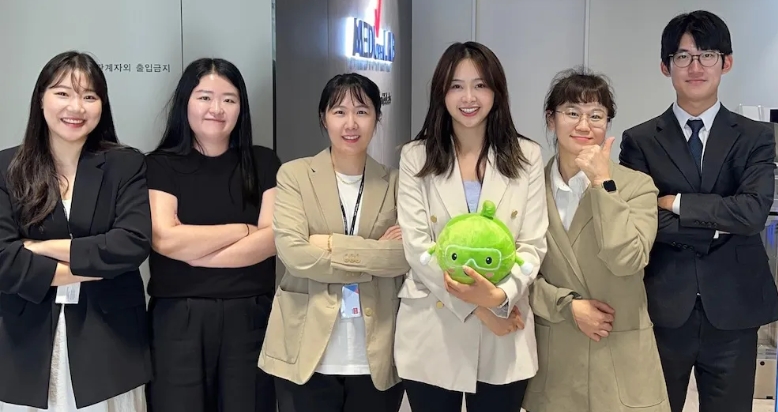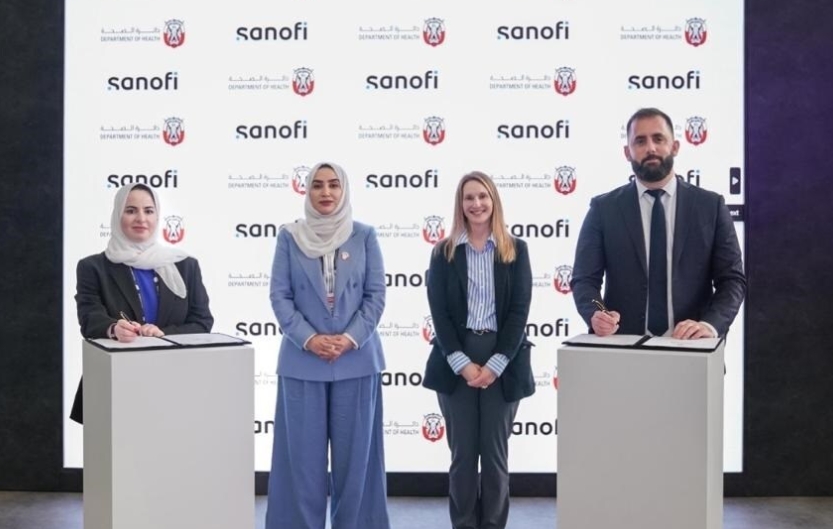
Dr Freda C Lewis-Hall, executive vice president and chief medical officer, Pfizer
Pfizer has been betting big on Asia Pacific and other emerging markets. The company has taken a lot of steps to tap and further extend its presence in these markets. Dr Freda C Lewis-Hall, executive vice president and chief medical officer, Pfizer, spoke about some of these strategies that are in place for the APAC region in an exclusive one-on-one interview with BioSpectrum during her visit to BioAsia 2013 in Hyderabad.
She highlighted some of the initiatives that the company has taken in APAC and throughout the world to support effective clinical trials and advance drug discovery. She also spoke about the various collaborations Pfizer has with several companies and institutions.
Please tell us about the division that you lead, Pfizer Medical
Pfizer Medical is the part of Pfizer whose role is ensuring the safe, effective and appropriate use of our medicines, from the first time a patient is exposed to one of our medicines in clinical trials to the last time a patient takes our medicine anywhere in the world. In order to do that, we have a number of organizations in the division. Within Pfizer Medical is a group that does quality assurance (QA) and regulatory work to support and ensure high quality conduct and implementation of our clinical trials.
We have another organization that is responsible for communication with physicians. That group is focused on providing high-quality medical information and managing physician educational support. And last but not least is a group that works on key public health issues, External Medical Affairs. They help partnerships and collaborations that are focused on answering key public health needs.
How is Pfizer developing strategies to meet the medical needs of patients in emerging markets?
We think that the heart of meeting unmet medical needs in India, in Asia or anywhere else around the world, is innovation. At the end of the day there are many diseases that affect us and few that are adequately treated. We think that Innovation is the key to meeting unmet need anywhere around the world. So our focus is on supporting innovation through discovery and collaborations that we think spur that, in good clinical development we have some activities that support that in Asia and around the world. Example, we are working with clinical trial sites to help get accreditation to support improvement in clinical trial conduct.
We conduct programs and workshops on good clinical practices and ethical practice. We have also developed tools that help protect patient safety and help patients be informed participants in clinical trials. My favorite tool is the "Speaking Book;" these books translate the complexity of clinical trials into language that anyone can understand, using a lot of illustrations, and help patients know if they are part of trials what their rights are. These speaking books come in a number of languages and we use these books in India and in Asia. These books were developed by Pfizer with the help of some partner organizations. We are excited about these. They are very simple and straightforward and help patients [enrolling in clinical trials] understand what they are going into.
A couple of years ago, Pfizer established an Emerging Markets division. This shines a light on the importance of the region and on the unique needs that come up in countries like India and it allows us an opportunity to focus on them and meet these unique needs. I think this is a great prospect and we have made great progress in the space. It reaffirms our commitment to the emergent market space.
In terms of R&D and clinical development, where does India stand for Pfizer?
We are very committed to India. We have been in the country for as long as I have been on earth, since the 1950's. We have very deep roots here and a commitment to delivering important innovations here. The business commitment and the commitment to the community, to helping to improve health, is one of the exciting parts of being at Pfizer for me. The desire to work not just on our work but integrate into community to understand what challenges are and to try to meet them with all the other stakeholders -- to work with public-private partnerships to help build collaborations -- that's part of the way we like to operate here in India. We are always open to working and collaborating here in India to drive innovation and to make sure patients have access to our medicines.
Pfizer is one of the partners of TransCelerate. How is Pfizer contributing to that?
TransCelerate is such an exciting and necessary option for industry. It was formed based on the belief that as industry leaders, these 10 companies [who are TransCelerate partners], we do a lot of things alone that would be more effective if we do them together. TransCelerate was formed to help us identify some areas that were low-hanging fruits. The 10 companies have agreed to contribute resources and expertise to make that happen. So this is an action-oriented group, we have workstreams that intend to pull projects together and work on these projects to improve clinical trial conduct. The workstreams are forming at this moment and moving forward.
In 2012, Pfizer's clinical trial for several drugs had seen ups and downs. What was the reason for that? For instance J&J, Pfizer halted the phase III trial of an investigational Alzheimer's therapy.
Welcome to drug development. It is disappointing because we were looking forward to an opportunity to make a dent in the devastating disease of Alzheimer's in the near term. Our biggest regret is that we will not be able to deliver a near-term intervention to the patients suffering from Alzheimer's. But out of the downsides of accepting the option to stop a trial like this, is the upside, and that is that we should be able to get some important information out of the data that we have collected to help inform the future around this disease. We are doing subset analyses looking at the data that we have and we hope to contribute to new research in the space.
How is Pfizer committed to promote "Healthy Aging" in Asia Pacific?
We had an exciting launch last year of a program called "Get Old". We wanted to stimulate and amplify the discussion on aging and to create a dialogue so that we can not only tell what we know about aging but also hear what others believe about aging. . Around the world, aging is a wonderful opportunity but also offers very significant challenges. In countries like China, Vietnam and Singapore the aging phenomenon is quite dramatic and we are looking at staggering numbers of people who are over 65 in very near term.
Let's take India for example: By the year 2050, there will be about 323 million people over the age of 60. That is larger than most countries. In India at that time you will have a country full of people who are over 60. That's good -- that means our longevity is improving -- but it is also a challenge. Because aging is one of the significant risk factors for some of the most dangerous diseases, cancers, diabetes, cardiovascular diseases, Alzheimer's. So this age wave becomes a tsunami of devastating non-communicable disease.
Pfizer is interested in two things. We want to help where we can on education and focusing on a healthy lifestyle and we want to have an impact on prevention, early detection and having viable treatment for these diseases which now may not have the most innovative therapies.
That's where we have begun to put our focus. How do we understand how lifestyle contributes and figure out what we can do about that? On the prevention side, adult vaccination is happening in Asia at woefully low rates. We have begun to get up to speed on childhood vaccination, but most adults don't realize that as they age they become more vulnerable to diseases and therefore adult vaccination should be considered. A lot of people who die from chronic diseases actually die from secondary consequences like pneumonia.
What is in the drug pipeline of the company?
We think we have a very exciting pipeline. We have a number of products that have been approved in the past year or so [in different countries]. Xalkori for treatment on non-small lung cancer, Eliquis for stroke prevention; tofacitinib [Xeljanz] in some countries for Rheumatoid Arthritis, and Inlyta for treatment of advanced renal cell carcinoma. If you think about the overall drought in the industry, these are interesting new approvals. We have focused the efforts in our portfolio.
We have now focusing on five therapeutic areas where there is significant unmet need and where we as a company believe that we have unique expertise that would help us bring solutions in the space: Cardiovascular and metabolic diseases, immunology and inflammation, neurosciences, oncology and vaccines. We also have areas of focus in biosimilars and rare diseases. We are enthusiastic about the pipeline we have in these areas and also the way we are approaching innovation through collaborations and partnerships. Our focus on specific areas, quality of molecules, and the collaborative nature [of research and development] is novel in many ways and really exciting.
Many companies bring different compounds through the pipeline and if we stop development, those compounds don't continue to develop for many reasons. These compounds exist in large and small companies and some of these compounds have never reached the market place. The idea behind repurposing is to go back and see if there is something other than what we looked at it for. We didn't see something else to do with this but maybe someone in other therapeutic area may have ideas about this compound. Thus, we are participating in two programs, including the World Intellectual Property Organization (WIPO) has a program called RE-SEARCH. This group has received compounds from various companies from around the world. The government, academic institutions, and NGOs look at the data and try to utilize the compounds for other diseases. This is like crowd-sourcing R&D.
Another program that we are associated with is a repurposing program run through the National Center for Advancement of Translational Sciences (NCATS), which is a new division at the National Institutes of Health (NIH) in the United States. We set up a platform where eight companies have contributed molecules which have not made to market; they appear safe, but development was stopped as the data didn't appear to be as robust in the indications that we were studying. Now, through the NCATS program, scientists can study these molecules for potential use in other diseases. I am excited about these two because I believe in using what you have and these [molecules] are among the most underutilized resources that we have. This is a form of meta-collaboration. NGOs, government, and others are coming together with the private sector to see what we can do to tackle the vexing problems in healthcare.
The pharma industry, especially R&D, is enduring significant changes. Many pharma companies are looking for new and more effective R&D models. Is Pfizer looking at making more changes and adjustments?
We are doing a lot of things because everyone is under the pressure to improve productivity. A part of what we do is focus on quality. We have made some challenging decisions to focus on 5 therapeutic areas, for example. Focus is one of the important elements to improve productivity. We have a lot of work ongoing that improves the quality of molecules that move forward all intending to focus on best possible success and the scientific, medical and commercial aspects of our molecules.
We are working on collaborative models such as the Centers for Therapeutic innovations, where `we bring together a number of academic institutions with our scientists to solve specific issues or problems in scientific research. We have these centers in Boston, in New York and in California. We are excited about this new model to bring the academic and private sectors together.
We are partnering in ways that are unique. There are many examples, but one of my favorites is our relationship with the Cystic Fibrosis Foundation, the patient advocacy organization. In that partnership we are bringing our expertise, technical work and experience in this space to match with a substantial financial investment on the part of the Foundation, $58 million, and their expertise and links to Cystic Fibrosis patient communities. This is an exciting way to move CF treatment forward.




